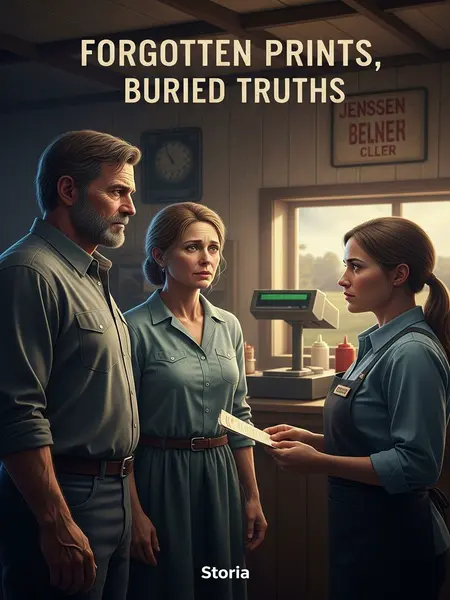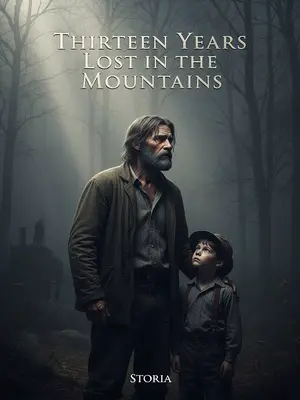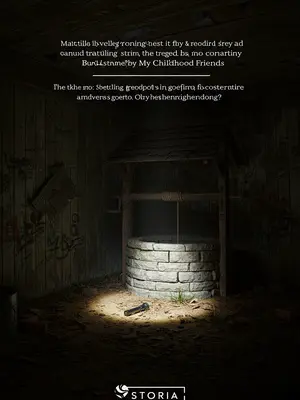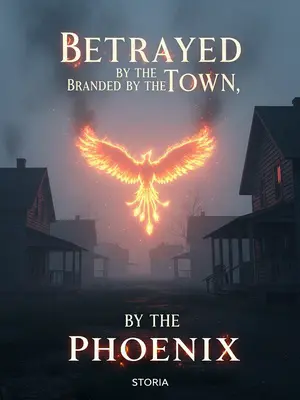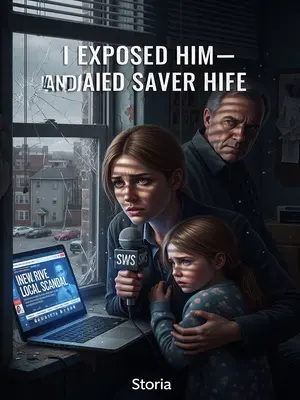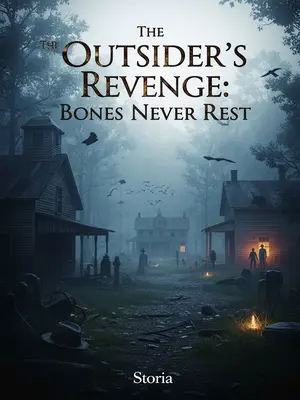Chapter 4: A Stranger Rescued
Caleb Jensen was found in the mountains by his future father-in-law, Henry Jensen.
That summer, twenty-two years ago, the rain came down in sheets, muddying the backwoods trails. Henry, out hunting for wild rabbits scattered by the flood, instead dragged a mud-caked figure from a ditch.
The woods felt different after a storm—heavy with the scent of wet earth, the leaves slick underfoot. Henry was a man who could follow a deer track by moonlight, his boots stained with years of red clay.
At first, Henry thought he’d hooked a wild boar. But when he pulled the body up, it was a young man—his right temple split open, blood washed pale by the rain.
A knife scar ran nearly from hip to rib on his left side, the kind of wound you don’t get from farm work—a mark that hinted at violence and desperation.
Henry checked for breath—still alive, thank God.
Relief mingled with worry. In these parts, strangers usually brought trouble.
Henry carried the mud man home, ignoring the whispers that would surely follow.
It was the sort of thing folks around here did, even if it meant inviting gossip or risking bad luck.
“Isn’t this some kind of spirit in disguise? Henry, you’ve picked up trouble this time.”
The pastor’s wife spat on the porch and fingered the cross at her neck, muttering, “It’s bad luck to bring a stranger in during a storm.”
Henry waved her off. He boiled three pots of ginger tea and forced them down the youth’s throat, grumbling about old wives’ tales and insisting a hot meal could cure almost anything.
When the youth finally opened his eyes, his pupils were sharp and bright, but he couldn’t say where he was from or even his own name.
He just stared, lost, answering every question with, “I don’t know.”
There was a hollowness to his voice, like someone who’d wandered too far from home.
Henry sighed. “He hasn’t come to his senses yet—probably scared half to death by a wild animal in the woods. Natalie, boil some water so he can wash up, let him eat and drink—maybe he’ll come around.”
Henry’s tone was gruff, but there was a gentle undertone. He’d seen enough hard times to recognize someone who needed a second chance.
The youth took a hot bath, devoured two big dinner rolls, and downed two bowls of chicken soup, but every question still got the same answer: “I don’t know.”
He sat at the kitchen table, steam rising from his soup, eyes fixed on the chipped linoleum.
Henry felt a headache coming on. Was the boy simple?
But after eating and bathing, the mud man seemed to come alive, revealing a handsome youth with red lips and white teeth—a stranger transformed by kindness.
Henry asked, “How old are you?”
The youth replied, “Sixteen.”
So, not slow after all.
He tried again: “Where are you from? What’s your name?”
The youth shook his head. “Don’t remember.”
“What about that scar on your side?”
“Don’t know.”
Henry went to the local doctor, who said, “He’s got a case of the forgets, I’d say. Probably hit his head when he landed in that ditch.”
“Then why does he remember his age?”
“Selective amnesia,” the doctor shrugged, as if that explained everything. In small towns, sometimes it did.
